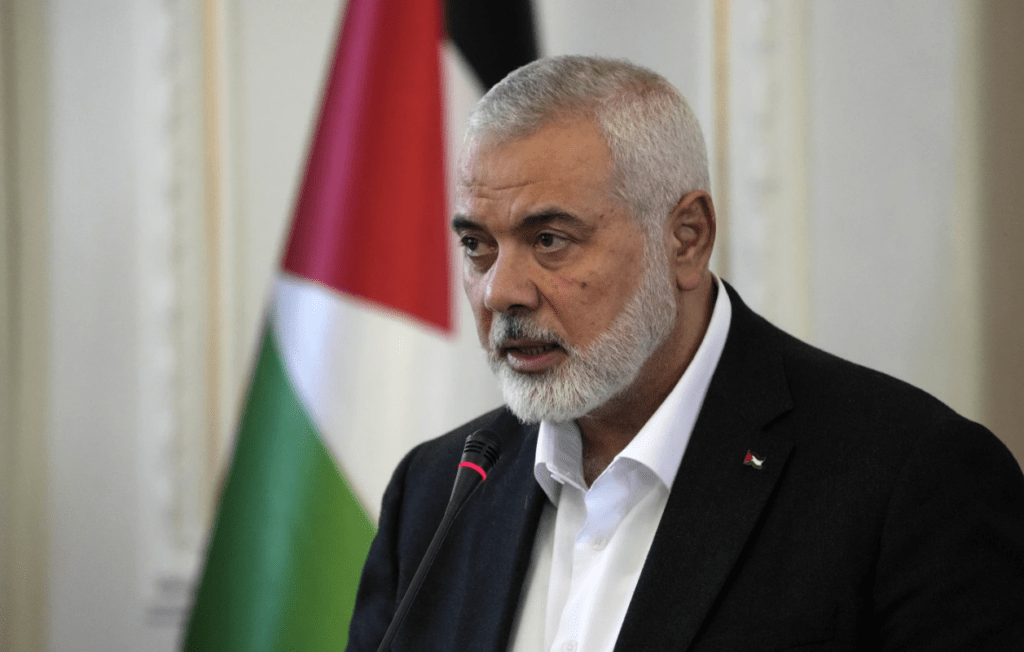31/07/2024
31/07/2024
The Ministry of Foreign Affairs of Kuwait strongly condemned the assassination of Ismail Haniya, head of Hamas politburo, in a recent airstrike in Tehran, Iran. They expressed deep concern over the criminal act attributed to Israel, labeling it a dangerous development and a breach of international law, particularly the respect for state sovereignty. The Ministry called on the United Nations and the international community to take immediate action to prevent further military escalation and chaos in the region. Kuwait also urged the Israeli government to halt its attacks and the genocide of the Palestinian people.

KUWAIT CITY, July 31, (Agencies): The Ministry of Foreign Affairs, in strong terms on Wednesday, expressed condemnation of the State of Kuwait of the attack that targeted the Islamic Republic of Iran, assassinating the head of Hamas movement politburo Ismail Haniya.
The Ministry of Foreign Affairs, in a statement, expressed deep concern at the criminal and irresponsible act by the Israeli entity, affirming that such hostile action is a dangerous development and flagrant breach of international laws and norms, namely respect of independent states’ sovereignty.
The ministry noted the State of Kuwait’s call upon the United Nations and other entities of the international community to take an immediate and firm stance to avert military escalation that will embroil the region and the world in the mayhem of chaos, and violence, and undermine the peace prospects. It renewed the call on the Israeli occupation government to stop the attacks and the genocide of the Palestinian people.
The Ministry offered condolences on behalf of the State of Kuwait to the Palestinian people and leadership. Haniya was killed in a predawn airstrike in Tehran, Iran, on Wednesday, which Iran and the militant group Hamas attributed to Israel. The assassination, occurring just after Haniya attended the inauguration of Iran's new president, poses a significant risk of escalating conflict in the region. Iran's supreme leader, Ayatollah Ali Khamenei, vowed revenge against Israel, marking a potentially dangerous escalation in the already volatile Middle East. Israel, which has vowed to target Hamas leaders following the group's October 7 attack on southern Israel, has not commented on the assassination.
The killing of Haniya, a top political leader of Hamas, may also impact ongoing negotiations for a cease-fire and hostage release deal in Gaza, which U.S. mediators had been advancing. This event further complicates the fragile situation between Israel and Hezbollah, following a recent rocket attack in the Golan Heights that killed 12 young people. The situation worsened with Israel's strike in Beirut, which allegedly killed a Hezbollah commander. U.S. officials, including Secretary of State Antony Blinken and Secretary of Defense Lloyd Austin, expressed concern over the potential for a broader conflict and emphasized the importance of pursuing diplomatic solutions. The international community, alarmed by the potential for a devastating regional war, is closely monitoring the situation.
The incident underscores the intricate and dangerous dynamics of Middle Eastern politics, with potential regional implications involving Iran and its allies, including Hezbollah and other groups in the "Axis of Resistance." The situation remains highly sensitive, with the possibility of further escalation if Iran and its allies decide to retaliate against Israel. The assassination has placed additional strain on cease-fire efforts in Gaza and could have significant repercussions throughout the region.


